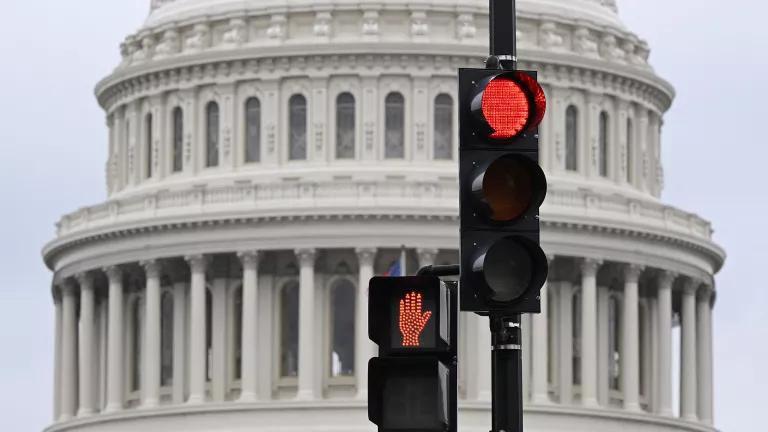Promptly at nine o'clock this morning, Congressman John Shimkus (R-IL) hit the gavel to start a hearing in the House Energy and Commerce Committee titled "Update on the Status of Current Waste Management." At issue for Representatives from California, Kentucky, Illinois, Washington and other states was the unfulfilled responsibility of the U.S. government to make sure that nuclear waste discharged from nuclear power plants and produced as a by-product of making nuclear weapons is safely disposed of in a deep geologic repository. And as Congressman Tonko (D-NY) remarked, with the unsolved nuclear waste problem, the "future of nuclear power is in question." Congressman Jerry McNerney (D-CA) emphasized the importance of "complete transparency" and "involvement of local communities" in any solution to the nuclear waste problem.
For some members of Congress reviving the defunct, troubled Yucca Mountain project in Nevada is a focus for legislative action on nuclear waste. Indeed, at the start of the hearing Chairman Shimkus clearly put it to Nevadans that in his view: "just saying no [to Yucca Mountain] is not an option." Nevertheless one outcome of today's hearing was to highlight the hurdles and problems for Yucca Mountain as described by witnesses, including NRDC Senior Attorney Geoffrey Fettus.
Witnesses at the hearing included Josephine Piccone, Director of the Yucca Mountain Directorate at the U.S. Nuclear Regulatory Commission (NRC). Dr. Piccone described that, despite the NRC staff's completion of the Yucca Mountain Safety Evaluation Report earlier this year, the U.S. Department of Energy (DOE) still has two unmet requirements before the NRC can proceed to the licensing hearing for Yucca Mountain. These two unmet requirements are: (1) federal ownership of land and water rights in the geologic repository operations area; and (2) completion of a supplement to the Yucca Mountain Environmental Impact Statement on groundwater. And even once these requirements are met by DOE, the NRC licensing process would have to content with approximately 300 "contentions" or challenges to the license. Dr. Picconne estimated that completion of the construction and authorization proceedings for Yucca Mountain would cost $330,000,000 (NRDC believes the final cost for the NRC proceedings on Yucca Mountain licensing would be far higher).
NRDC's Geoff Fettus expanded on the problems surrounding Yucca Mountain in his testimony:
"First, with respect to Yucca, and I'll note that Nevada is not here, it's clear some members believe the proposed Yucca site is a safe place to bury spent nuclear waste and that the project can be revived now that Senator Reid is retiring. Respectfully, this is not accurate. Efforts to restart the failed process face an uphill climb of massive technical and institutional challenges, years of litigation, and a complete lack of meaningful state consent. Simply, Yucca Mountain leaks profusely, licensing depends on an at this point fictional set of drip shields, and the state is joined across party lines to litigate the matter for as long as it takes."
NRDC's full written testimony before the House Energy and Commerce Committee can be found here. As an environmental advocacy organization, NRDC has a clear mission and focus on workable, sustainable solutions to the threat to human health and the environment from nuclear waste. At the hearing Geoff Fettus presented a five-point plan that summarized NRDC's concept for such a solution to the nuclear waste problem:
(1) recognize that repositories must remain the focus of any legislative effort;
(2) create a coherent legal framework before commencing any geologic repository or interim storage site development process;
(3) arrive at a consent-based approach for nuclear waste storage and disposal via a fundamental change in law;
(4) address storage in a phased approach consistent with the careful architecture of former Senator Bingaman's S. 3469 (introduced in 2012); and
(5) exclude delaying, proliferation-driving and polarizing closed fuel cycle and reprocessing options from this effort to implement the interim storage and ultimate disposal missions.
In the last half century the federal nuclear waste program has been dismal: lacking sound science, highly politicized and fragmented. Solving the nuclear waste problem is a moral obligation that we have to future generations: our government must not neglect this problem. But as Geoff Fettus concluded: "decades from now others will face the precise predicament we find ourselves in today unless Congress revamps how nuclear waste is regulated and allows for meaningful State oversight. Otherwise, we're doomed to repeat this dismal cycle until a future Congress gets it right."




